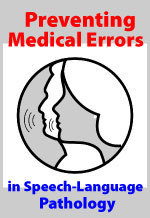Florida psychologists have an upcoming license renewal deadline of May 31, 2024. The following continuing education (CE) requirements must be met prior to renewal:
CE Required: 40 hours every 2 years, including:
3 hours Florida Psychology Ethics & Law each renewal
2 hours Preventing Medical Errors in Behavioral Health each renewal
2 hours Domestic Violence every third renewal
Online CE Allowed: No limit @ PDR
License Expiration: 5/31, even years
If you have already met your CE requirements and are ready to renew, click here to renew your license with the Florida Board of Psychology.
Still need CE? You can earn all 40 hours for renewal through online courses @ PDR. Order now and Save 20% on all courses. We report to CE Broker for you!

Enjoy 20% off ALL Online CE courses for your Florida Psychologist license renewal. Use promo code PDR488 to redeem. Valid on all future orders thru 6/30/2024.
Click here to view over 100 online courses for Florida Psychologists.
Professional Development Resources is approved by the American Psychological Association (APA) to sponsor continuing education for psychologists. Professional Development Resources maintains responsibility for all programs and content. Professional Development Resources is also approved by the National Board of Certified Counselors (NBCC ACEP #5590); the Association of Social Work Boards (ASWB Provider #1046, ACE Program); the American Occupational Therapy Association (AOTA Provider #3159); the Commission on Dietetic Registration (CDR Provider #PR001); the Alabama State Board of Occupational Therapy; the Florida Boards of Social Work, Mental Health Counseling and Marriage and Family Therapy (#BAP346), Psychology & School Psychology (#50-1635), Dietetics & Nutrition (#50-1635), and Occupational Therapy Practice (#34); the Georgia State Board of Occupational Therapy; the New York State Education Department’s State Board for Mental Health Practitioners as an approved provider of continuing education for licensed mental health counselors (#MHC-0135) and marriage and family therapists (#MFT-0100) and the New York State Education Department’s State Board for Social Workers an approved provider of continuing education for licensed social workers (#SW-0664); the Ohio Counselor, Social Worker & MFT Board (#RCST100501); the South Carolina Board of Professional Counselors & MFTs (#193); the Texas Board of Examiners of Marriage & Family Therapists (#114) and State Board of Social Worker Examiners (#5678); and is CE Broker compliant (all courses are reported within a few days of completion).
Enjoy 20% off all online continuing education (CE/CEU) courses @pdresources.org! Click here for details.








